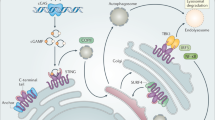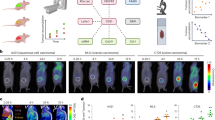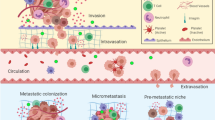Abstract
The interactions between tumour cells and the microvasculature, including the adhesion of tumour cells to endothelium and extracellular matrix (ECM) as well as their migratory ability, are prerequisites for metastasis to occur. In this study we showed that thrombin is capable of enhancing in vitro tumour cell metastatic potential in terms of adhesive properties and migratory response. Following exposure to subclotting concentrations of thrombin, SW-480 human colon adenocarcinoma cells exhibited increased adhesion to both the endothelium and ECM component (i.e. fibronectin). Likewise, the pretreatment of thrombin enhanced the migratory ability of SW-480 cells. The enhanced adhesion was significantly inhibited by complexing of thrombin with its inhibitor hirudin, or by serine proteinase inhibition with 3,4-DCI, but was unaffected by pretreatment of tumour cells with actinomycin D or cycloheximide. The effect of thrombin resulted in an upregulated cell-surface expression of beta 3 integrins, a group of receptors mediating interactions between tumour cells and endothelial cells, and between tumour cells and ECM. Antibodies against beta 3 integrins effectively blocked both the enhanced adhesion and migration. This thrombin-mediated up-regulation of beta 3 integrins involved the activation of protein kinase C (PKC) as thrombin-enhanced adhesion was diminished by PKC inhibition. Rhodostomin, an Arg-Gly-Asp-containing antiplatelet snake venom peptide that antagonises the binding of ECM toward beta 3 integrins on SW-480 cells, was about 600 and 500 times, more potent that RGDS in inhibiting thrombin-enhanced adhesion and migration respectively. Our data suggest that PKC inhibitors as well as rhodostomin may serve as inhibitory agents in the prevention of thrombin-enhanced metastasis.
This is a preview of subscription content, access via your institution
Access options
Subscribe to this journal
Receive 24 print issues and online access
$259.00 per year
only $10.79 per issue
Buy this article
- Purchase on Springer Link
- Instant access to full article PDF
Prices may be subject to local taxes which are calculated during checkout
Similar content being viewed by others
Author information
Authors and Affiliations
Rights and permissions
About this article
Cite this article
Chiang, HS., Yang, RS. & Huang, TF. Thrombin enhances the adhesion and migration of human colon adenocarcinoma cells via increased β3 -integrin expression on the tumour cell surface and their inhibition by the snake venom peptide, rhodostomin. Br J Cancer 73, 902–908 (1996). https://doi.org/10.1038/bjc.1996.161
Issue Date:
DOI: https://doi.org/10.1038/bjc.1996.161
This article is cited by
-
Platelet-targeted pharmacologic treatments as anti-cancer therapy
Cancer and Metastasis Reviews (2017)
-
Inhibition of invasion and metastasis of MHCC97H cells by expression of snake venom cystatin through reduction of proteinases activity and Epithelial-Mesenchymal Transition
Archives of Pharmacal Research (2011)



